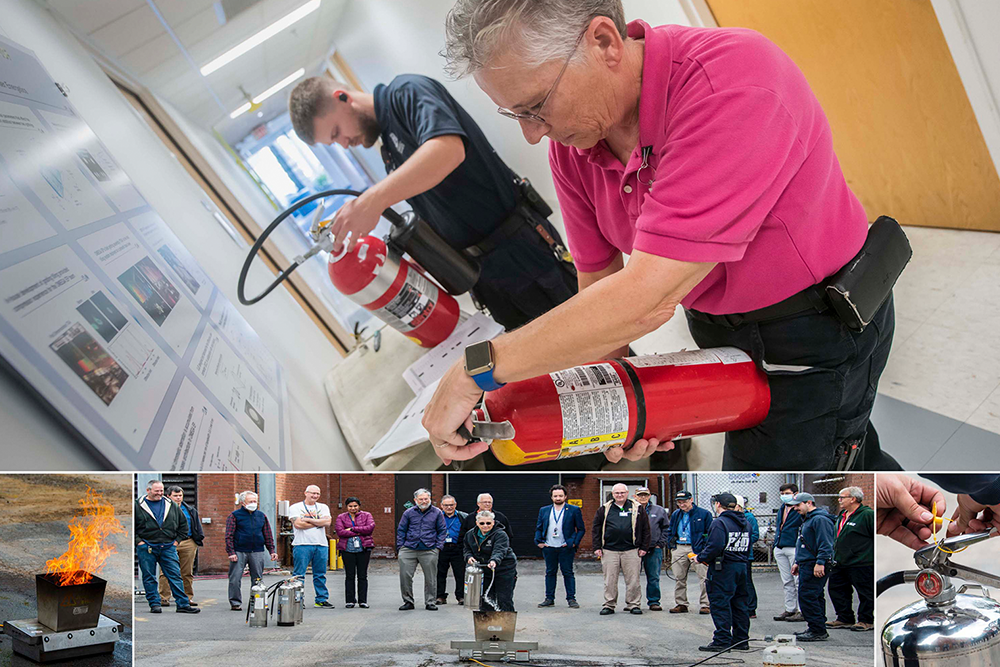 01
Jan
01
Jan
Essential Tips For Fire Safety In Nursing Homes
- 0 Comment(s)
- January 1, 2025
Fire safety in nursing homes is paramount due to the vulnerable population these facilities serve. Older adults, especially those with mobility issues or cognitive impairments, may not be able to evacuate quickly in the event of a fire. This makes preventing fires and having a comprehensive emergency plan even more critical. Let us discuss some key tips for ensuring fire safety in nursing homes, including prevention measures, staff training, and emergency response protocols.
Install and Maintain Fire Detection Systems
Proper fire detection systems are the first line of defense in any facility, especially in nursing homes. Smoke alarms, heat detectors, and fire sprinkler systems can detect and suppress fires before they escalate. Regular maintenance is crucial to ensure these systems work effectively when needed. A simple test of alarms and sprinklers can save lives, and they should be checked monthly as part of the facility’s safety protocols.
Nursing homes should also consider integrating a monitored fire alarm system that alerts local fire departments in case of an emergency. This is especially important when staff members have limited ability to manage an emergency situation on their own.
Staff Training on Fire Safety Procedures
Staff members play a crucial role in preventing and responding to fires. All staff should have regular training covering topics such as fire extinguisher use, evacuation plans, and fire drills. Every nursing home should have a detailed fire safety plan that includes:
- A clear evacuation route
- Designated roles for staff members
- Procedures for assisting residents with mobility issues
- A plan for checking that all residents have been safely evacuated
By conducting fire drills regularly, staff can stay sharp and prepared to act quickly in case of an emergency. Training on using fire extinguishers is also a vital part of fire safety services, and all staff should know how to handle fires before they spread.
Implement Proper Storage of Flammable Materials
Flammable substances, including cleaning supplies and oxygen tanks, must be kept in designated storage areas, away from potential heat sources, to prevent fire risks. Nursing homes should implement strict protocols for storing these items in fireproof containers or rooms. Proper signage and labeling should also be used to identify hazardous materials so staff can act quickly in case of a fire.
In addition, any electrical equipment should be regularly inspected to prevent faulty wiring that could start a fire. This includes everything from medical devices to kitchen appliances.
Ensure Proper Evacuation Procedures for All Residents
Evacuating residents in the event of a fire can be complicated, especially in a nursing home where residents may have limited mobility or cognitive impairments. An efficient evacuation plan must account for these challenges. Evacuation routes should always be clearly marked and free from obstructions.
It’s also important to ensure that there are enough staff members to assist residents in moving to safety. A fire emergency service plan should detail specific roles for staff, whether that is assisting residents in exiting through designated fire exits or leading them to safer areas in the building.
Install Fire Extinguishers in Key Locations
Fire extinguishers are one of the most vital tools in a fire, but they must be properly placed and accessible. Fire extinguishers should be located in areas like the kitchen, near electrical equipment, and in hallways. In nursing homes, fire extinguishers must be checked regularly to make sure they’re in working condition.
Staff members should be trained to use fire extinguishers correctly to prevent fires from spreading. Proper training can prevent a small fire from becoming a major emergency.
Perform Regular Fire Drills and Simulations
Fire drills are essential for ensuring that staff and residents know what to do in the event of a fire. Drills should be conducted at least once a year to evaluate how quickly the evacuation plan can be executed. During the drill, staff members should practice:
- Quickly identifying the source of the fire
- Using fire extinguishers to put out small fires
- Evacuating residents safely
- Communicating with the fire department and emergency responders
Fire safety in nursing homes is not only a legal requirement but a moral obligation. With the proper precautions, such as maintaining fire detection systems, providing staff training, and having proper evacuation plans, nursing homes can significantly reduce the risks associated with fire hazards. Yadkin Fire & Safety is dedicated to supporting residential and healthcare facilities with fire safety services, making sure that they meet safety standards and are prepared for emergencies. Regular inspections, equipment servicing, and training can provide peace of mind and prevent potentially devastating incidents.
By focusing on proactive measures, such as fire extinguisher services and regular fire drills, nursing homes can create a safe environment for their residents, staff, and visitors. Fire safety is an ongoing effort and commitment to it is key to protecting everyone in your care.

